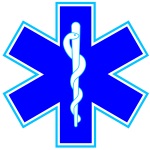Premature Ventricular Contractions (PVC): Difference between revisions
From Protocopedia
No edit summary |
|||
| Line 20: | Line 20: | ||
*** In patients over age 70 or in those with known hepatic disease, repeat doses need to be carefully titrated to suppress PVC’s given over a long period of time. These patients may have reduced lidocaine clearance therefore can reach toxic levels or develop seizures with doses lower than 3 mg/kg. | *** In patients over age 70 or in those with known hepatic disease, repeat doses need to be carefully titrated to suppress PVC’s given over a long period of time. These patients may have reduced lidocaine clearance therefore can reach toxic levels or develop seizures with doses lower than 3 mg/kg. | ||
[[Category:Cardiac]] | [[Category:Cardiac|0405]] | ||
Revision as of 15:43, 1 February 2018
Section 4 - CARDIAC
4.05 PREMATURE VENTRICULAR CONTRACTIONS (PVC)
CONSIDER MEDICAL ETIOLOGY OF PVC’s AND REFER TO APPROPRIATE PRACTICE PARAMETER:
- Hypoxia, INITIAL MEDICAL CARE (2.01).
- Side-effects of other drugs, etc.
- INITIAL MEDICAL CARE (2.01). - OXYGEN @ 100% via NRB mask or assist with BVM.
- Treat if PVCs are consistent in patients with signs and symptoms which suggest angina / myocardial infarction:
- 6 per minute
- Multifocal
- R on T phenomena
- Runs of V-Tach / Couplets
- Administer LIDOCAINE 1 to 1.5 mg/kg IVP, IO
- Patients receiving LIDOCAINE need to receive a full loading dose titrated to suppress the PVC’s.
- In patients over age 70 or in those with known hepatic disease, administer LIDOCAINE gradually up to a full initial loading dose or until a maximum of 1.5 mg/kg administered.
- If recurrent or refractory and patient is symptomatic, administer bolus of LIDOCAINE 0.5 mg/kg IVP, IO and repeat as necessary up to a total administration of 3 mg/kg.
- In patients over age 70 or in those with known hepatic disease, repeat doses need to be carefully titrated to suppress PVC’s given over a long period of time. These patients may have reduced lidocaine clearance therefore can reach toxic levels or develop seizures with doses lower than 3 mg/kg.
- Patients receiving LIDOCAINE need to receive a full loading dose titrated to suppress the PVC’s.
